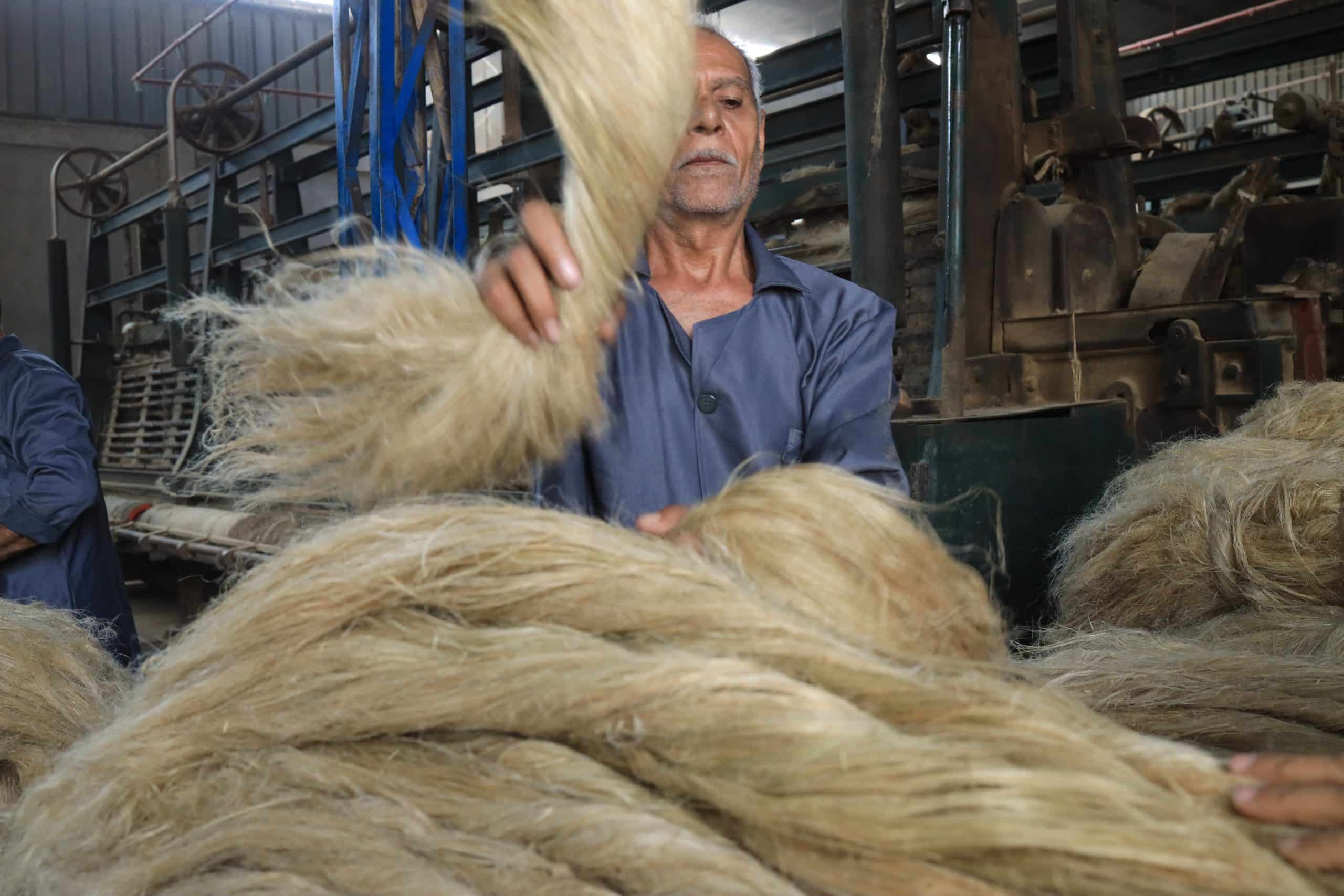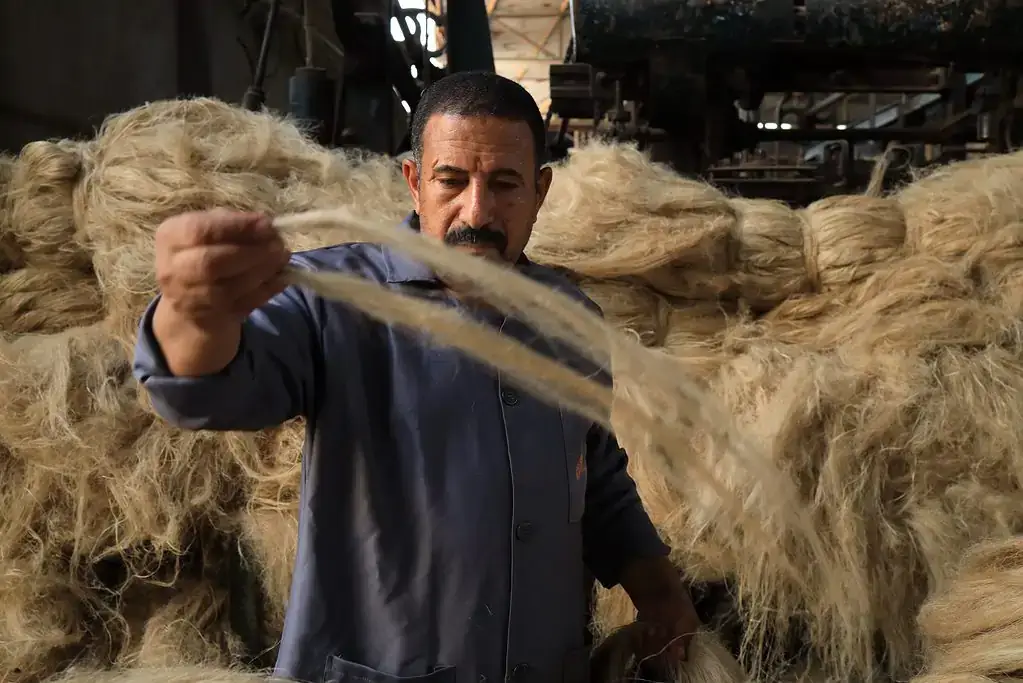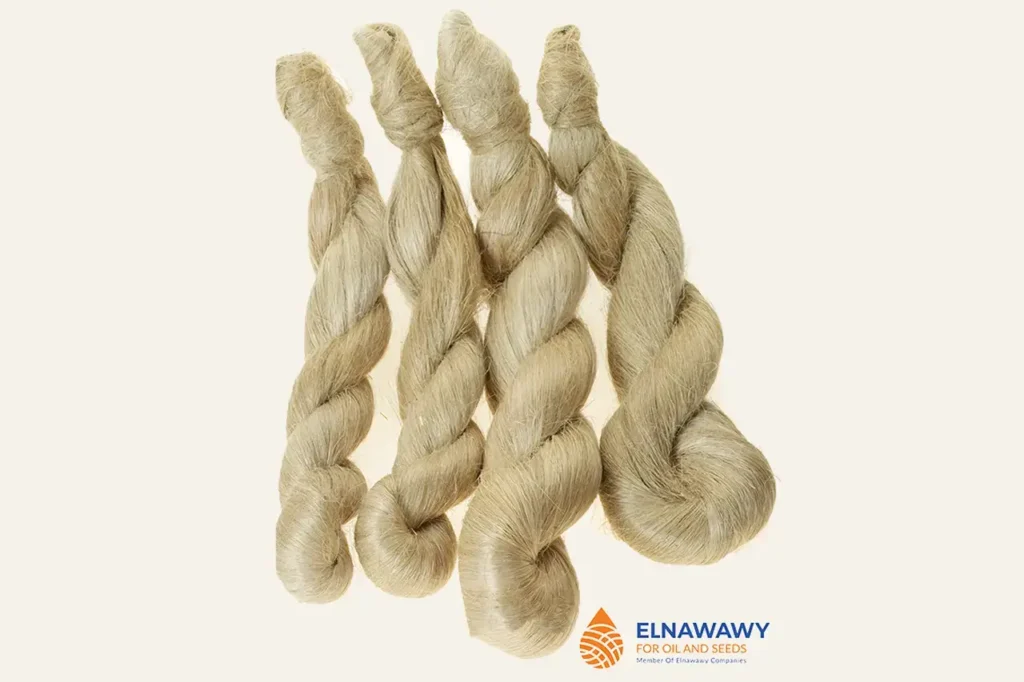
Egyptian Flax Fibers & Raw Material
Flax fiber is one of the oldest natural fibers used for textiles, dating back to ancient civilizations in Egypt and China. Today, flax fiber is gaining popularity again as a sustainable and eco-friendly alternative to synthetic fibers, such as polyester and nylon, which are derived from non-renewable resources and have significant environmental impacts.
Our offerings of flax fibers
Flax fibers go through several stages of dressing or preparation before spinning. Of these stages, “scutching” and “hackling” are very important. These stages remove the woody straws from the fibers and straighten the fibers.
We sell Egyptian flax fibers in several grades:
- Raw Long Fibers (L.F.) raw without hackling
- Hackled Long Fiber (Hackled L.F.)
- Machine Tow
- Rescutched Tow (Arrous)

Raw Long Fiber (L.F.)
We sell long fibers of raw flax without hackling.
As mentioned above, there are two main stages of dressing the flax fibers: scutching and hackling. Scutching removes the impurities and straws from the fibers. Hackling straightens the long fiber and removes the short fibers from it.

Hackled Long Fiber (Hackled L.F.)
We also offer to sell the long fibers of flax after “hackling” them. In our hackling machinery (shown in the image to the left), the fibers pass through combs with varying pin density. Hackling removes any last bit of straws and impurities from the fibers, separates the short fibers (called “Machine Tow”) from the long fibers, and straightens the fibers.

Machine Tow (M.T.)
We offer to sell Machine Tow (M.T.) fibers. During the hackling process, the combs separate the short fibers from the long fibers. The short fibers are called “Machine Tow”.
Machine tow is considered medium grade flax fiber. Its fibers are not as long as the long fibers. It is a very good fiber for spinning yarn count from 0.2 Nm up to 6 Nm.

Arrous (Rescutched Tow)
We offer to sell Rescutched Tow (R.T.) Arrous fibers. Rescutched tow fibers are the result of “rescutching” the fibers.
The scutching process cleans the fiber from impurities and straw. However, it also “wastes” some fibers. The waste result of scutching can go through a process of “rescutching” to further separate the straws and impurities from the wasted fibers. The result “rescutched” fiber is called Arrous. It is considered the lowest grade of flax fibers.

Raw Long Fiber (L.F.)
We sell long fibers of raw flax without hackling.
As mentioned above, there are two main stages of dressing the flax fibers: scutching and hackling. Scutching removes the impurities and straws from the fibers. Hackling straightens the long fiber and removes the short fibers from it.

Hackled Long Fiber (Hackled L.F.)
We also offer to sell the long fibers of flax after “hackling” them. In our hackling machinery (shown in the image to the left), the fibers pass through combs with varying pin density. Hackling removes any last bit of straws and impurities from the fibers, separates the short fibers (called “Machine Tow”) from the long fibers, and straightens the fibers

Machine Tow (M.T.)
We offer to sell Machine Tow (M.T.) fibers. During the hackling process, the combs separate the short fibers from the long fibers. The short fibers are called “Machine Tow”.
Machine tow is considered medium grade flax fiber. Its fibers are not as long as the long fibers. It is a very good fiber for spinning yarn count from 0.2 Nm up to 6 Nm.

Arrous Rescutched Tow (R.T)
We offer to sell Rescutched Tow (R.T.) Arrous fibers. Rescutched tow fibers are the result of “rescutching” the fibers.
The scutching process cleans the fiber from impurities and straw. However, it also “wastes” some fibers. The waste result of scutching can go through a process of “rescutching” to further separate the straws and impurities from the wasted fibers. The result “rescutched” fiber is called Arrous. It is considered the lowest grade of flax fibers.


